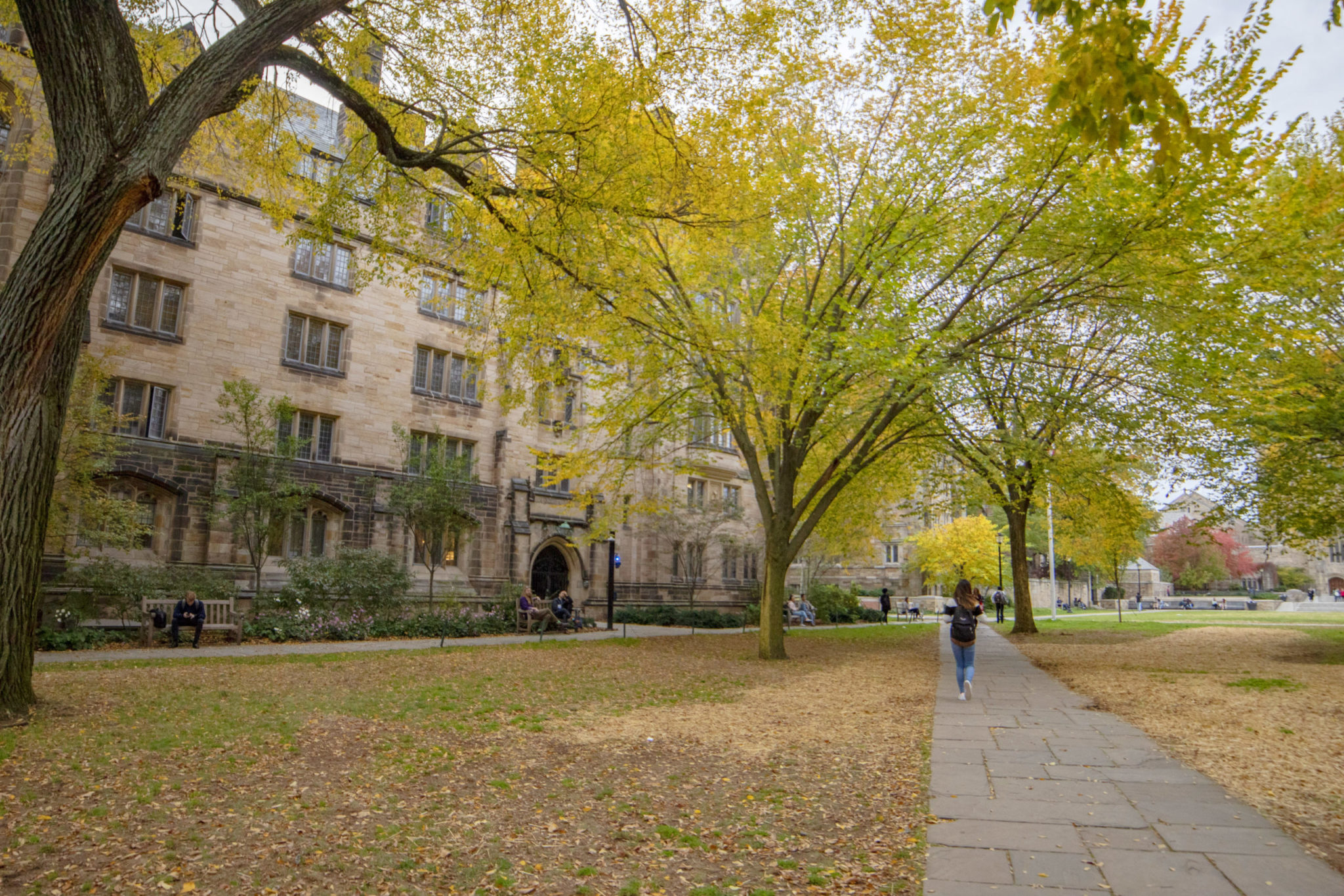
Zoe Berg, Photo Editor
The University will have a modified spring term schedule that begins on Feb. 1, ends in May and does not include a spring break, administrators announced on Tuesday.
The spring semester will begin two weeks later than usual in a bid to avoid the flu season. To account for the lost spring recess, the University will include five separate break days throughout the semester. Yale finalized the spring term plans on Oct. 6, after the University’s Calendar Standing Committee submitted the idea to University President Peter Salovey, the University’s vice presidents and University Provost Scott Strobel.
“The success we’ve had this fall is what makes it possible to begin thinking about how we can continue that success into the spring,” Strobel told the News.
Students will begin arriving on campus during the final week of January. Like the fall term, they will participate in an arrival quarantine, and the first week of classes will be entirely online. The University is currently finalizing student move-in plans, Vice Provost for Academic Initiatives Pericles Lewis told the News.
To avoid having students travel to and from campus, the semester will not include a spring break. Instead, the University will introduce individual break days. The days off are Feb. 22, March 9, March 24, April 8 and April 23.
“We’re doing things to decompress the semester,” Strobel said. “[We’re] essentially distributing a week of holiday across the length of the semester.”
Classes will end on May 7, one week later than was previously announced, according to Strobel. Afterward, students will participate in a reading period from May 8 to May 12, before taking exams from May 13 to May 19. Senior week will take place from May 20 to May 24, and commencement will be on May 24.
According to Salovey’s email, sophomore, junior and senior undergraduates will be allowed to return to campus in the spring. Graduate and professional school students — who were among the first to return to campus after students were sent home last spring — will continue to have the option of staying in on-campus housing in the spring. Most graduate and professional school courses will be taught remotely or with a mix of online and in-person options.
The rationale
In an interview with the News, Strobel and Lewis explained the rationale behind the decision. The delayed start date allows the University to avoid most of the flu season and the possibility of having to deal with dual pandemics — the flu and COVID-19. Additionally, by March and April, students may be able to spend more time outdoors, where there is less risk of coronavirus transmission, Lewis said.
“We would like to minimize the amount of time that is overlapped between flu season and the semester,” Strobel said. “We can’t do that perfectly, but every day counts.”
Richard Martinello, medical director of infection prevention at Yale New Haven Hospital, explained that if students show symptoms of a respiratory infection, it can be difficult to distinguish whether they have the flu or COVID-19. Doctors therefore have to treat patients with the symptoms as if they have the coronavirus.
Additionally, Strobel and Lewis explained that the University hopes to minimize students’ off-campus travel by getting rid of spring break.
Who decides?
The University established a basic calendar last spring in consultation with the Academic Continuity Committee, one of the planning committees formed in response to the pandemic. The committee received input from students of Yale College and the graduate and professional schools, including both the current and outgoing Yale College Council presidents. Since making the decision, the University has alerted some faculty to the compressed spring semester schedule.
Strobel and Lewis explained that administrators told faculty members about the decision because faculty will ultimately be the ones to decide whether to teach in-person or online courses. Currently, some labs and art courses are taught in person, while the majority of courses are taught over Zoom. Come spring, the faculty will decide whether to move more classes to an in-person format.
“It’s variable across departments,” Strobel said. “But I would suspect most courses will be taught online.”
Strobel emphasized that this decision to have students return to campus in some capacity in the spring is only possible because of the successful fall semester, specifically noting that he is “thrilled” with how well students are following the community guidelines and how the semester is going in general. Yale’s COVID-19 dashboard shows 28 cases on campus since Aug. 1.
Though Martinello explained that the public health situation on campus has been “so far, so good,” he added that community members should remain cautious. The state of Connecticut, including New Haven, is currently seeing a slight increase in COVID-19 cases, Martinello said, and he is worried about a potential second wave.
Confusion on Tuesday
On Tuesday morning, Yalies first heard about the late spring start in an email sent to students in the ethics, politics and economics major, when Frances Rosenbluth, EP&E director, wrote that classes will not start until February of 2021.
Soon after, news of the email spread across Twitter and other social media outlets, prompting confusion and strong reactions from students. On Instagram, students posted screenshots of the email along with puzzled captions.
In a follow-up email about 90 minutes after the original, Rosenbluth corrected her statement and wrote that “I’ve just been told that there is no decision yet about Jan versus Feb start date for the spring.” In a Tuesday afternoon email to the News, she confirmed that Yale was considering multiple options, including starting the spring semester in February, but did not confirm that a decision was finalized.
Multiple other directors of undergraduate studies interviewed by the News on Tuesday morning and early afternoon confirmed that the February start date was under consideration, but none confirmed that a final decision was made. Salovey’s email announcing the new spring calendar was sent to the Yale community late Tuesday evening.
Sophomores can return to campus for the spring term, while first years will not be allowed to stay in residential colleges.
Madison Hahamy | madison.hahamy@yale.edu
Rose Horowitch | rose.horowitch@yale.edu
Update, Oct. 6: This is a developing story. It has been updated to reflect information in Salovey’s email.








